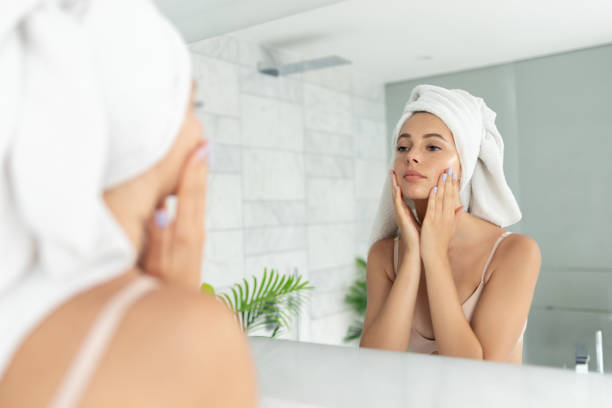12 Frequently Asked Questions About Retinol
12 Frequently Asked Questions About Retinol

12 Frequently Asked Questions About Retinol
Retinol, a form of vitamin A, has taken the beauty and skincare world by storm for its remarkable benefits in addressing various skin concerns. From reducing wrinkles to promoting a smoother complexion, retinol has become a skincare staple. This article will explore 12 commonly asked questions about retinol, shedding light on its properties, usage, and the science behind its effectiveness.
What is Retinol?
Retinol is a derivative of vitamin A and belongs to the retinoid family. It is renowned for its ability to stimulate collagen production and promote skin renewal, making it a potent anti-aging ingredient in skincare.
How Does Retinol Work?
Retinol works by accelerating cell turnover, encouraging the shedding of old, damaged skin cells, and promoting the growth of new, healthy cells. This process helps improve skin texture, reduce fine lines, and fade hyperpigmentation.
What Are the Benefits of Using Retinol?
Retinol offers numerous benefits, including reducing the appearance of wrinkles, fine lines, and dark spots. It also helps unclog pores, preventing acne, and promotes a smoother, more youthful complexion.
Is Retinol Suitable for All Skin Types?
While retinol is generally safe for most skin types, individuals with sensitive skin may experience irritation. It is crucial to start with a lower concentration and gradually increase usage. Consultation with a dermatologist is advisable, especially for those with skin conditions.
When Should I Introduce Retinol into My Skincare Routine?
It is recommended to introduce retinol in your late twenties or early thirties as a preventive measure against premature aging. However, it's never too late to start incorporating retinol into your routine to reap its benefits.
How Often Should I Use Retinol?
Start using retinol 2-3 times a week and gradually increase frequency as your skin builds tolerance. Be consistent and ensure you use a moisturizer after application and sunscreen during the day to protect your skin.
Can I Use Retinol with Other Skincare Ingredients?
Retinol can be used in combination with other skincare ingredients like hyaluronic acid and vitamin C. However, it is crucial to layer products appropriately and patch-test new combinations to avoid potential irritation.
Does Retinol Have Any Side Effects?
Some users may experience mild side effects such as redness, peeling, or dryness when first using retinol. These symptoms are typically temporary and can be managed by adjusting the frequency of use and using a hydrating moisturizer.
Can I Use Retinol During Pregnancy?
Pregnant or breastfeeding individuals should consult their healthcare provider before using retinol, as high doses of vitamin A may pose risks to the developing fetus.
What Strength of Retinol Should I Use?
Retinol products come in various strengths. Beginners should start with a lower concentration (around 0.25% to 0.5%) and gradually move up as their skin builds tolerance.
Can I Use Retinol during the Day?
While retinol is typically used at night, some formulations are for daytime use. However, it is important to apply sunscreen during the day, as retinol can make the skin more sensitive to UV rays.
How Long Does It Take to See Results with Retinol?
Visible results from retinol use may take several weeks to a few months. Patience is key, and consistency in application will yield the best outcomes.
Conclusion
Retinol, with its transformative properties, has become a skincare powerhouse. Understanding how to incorporate it into your routine and addressing common questions will empower you to make informed choices for healthier, more radiant skin. Remember, consistency, gradual introduction, and sun protection are the keys to unlocking the full potential of retinol.
